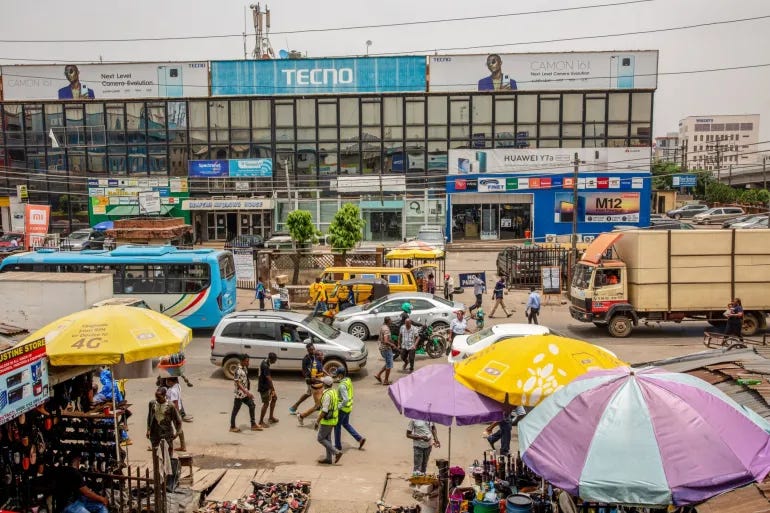It’s Not Just About Mrs. Buhari’s Dubai Birthday
Those in or near Nigeria’s centers of power often seem bent on provoking hapless Nigerians with acts of mindlessness.
One such outrage came with a recent viral video. In it, members of the Nigeria Governors’ Wives Forum were in Dubai serenading Aisha Buhari, wife of President Muhammadu Buhari, on her 51st birthday. Some might say, what’s wrong with a contingent of Nigerian governors’ wives eating cake and making merry with Mrs. Buhari in a foreign country?
I’d be the last to complain if all the parties concerned – the celebrant and her retinue of well-wishers – had junketed in Dubai at their own expense. No one has the right to dictate how others may spend their cash. It’s a totally different matter if public funds are in play. I highly doubt that Mrs. Buhari and the governors’ wives paid for their Dubai trips out of pocket.
In that event, Nigerians who decried the obscene outing in Dubai are within their right. After all, they paid for that thoughtless exercise in vanity. And they paid for it at a time of worsening economic outlook and social dislocation in their country.
Shall we count the ways in which Nigeria is broken? There is, once again, that familiar specter of fuel scarcity. In many parts of the country, gasoline is hard to come by. And the pump price keeps rising. Of course, soaring fuel prices reverberate throughout the economy. They drive costs in other areas, from transportation, rent, school fees, to everyday goods.
Of course, the average Nigerian’s earning power undergoes continual evisceration. That means that each naira in the pocket loses value over time. By contrast, government and private sector employers hardly ever entertain boosting salaries. In effect, under Buhari’s watch, inflation has pauperized a wide swath of Nigerians, including those grouped in the middle class.
The picture is dire enough for most Nigerian. But it gets worse. The pandemic devastated many businesses. Quite a few of them went kaput. High unemployment has been an intractable issue. It got bleaker. Many economists predict a significant post-pandemic spike in global misery index. It’s a safe bet that millions more of Nigerians were chuted into destitution in the last two years.
In Joe Biden’s America, a supply chain crisis, Covid-related disruptions, and Russia’s invasion of Ukraine have spawned one of the worst inflations in several decades. The US national average for a gallon of fuel is around four dollars, more than a dollar higher than a year ago. Across the board, the prices of groceries are also trending up. In sum, the annual inflation in the US has surpassed seven percent.
American consumers don’t sleep easy in the face of such inflationary pressures on their income. In fact, they turn irate when a few cents are tacked onto the prices of foodstuffs and goods. Consider, then, that the inflation plaguing US consumers and corporate entities is child’s play compared to Nigeria’s situation.
It’s actually un-Nigerian for prices to rise by modest percentages. Often, within a relatively short time frame, prices double. Or – just as likely – they quadruple. And we’re not talking about the price of cement, timber, and other building material. Folks who can afford such items can easily forego them. But what do you do when, from one month to another, food prices shoot up by 50% or even more? This is by no means a rare occurrence.
Of course, if the pricey groceries are the processed fare imported from South Africa, China, and Europe, that won’t be so bad. After all, even at the best of prices, it’s a small group of financially well-off Nigerians who crave these items. It’s much sadder when such staples as rice, beans, tomatoes, yam and noodles are priced out of the reach of many Nigerians.
On February 14, Nigeria’s university lecturers began a month-long strike. Incessant strikes are part and parcel of Nigerian students’ academic experience. In this case, the lecturers’ demand is that the government keep commitments it made a few years ago to improve pay and invest more in education. Buhari has retorted that former President Goodluck Jonathan made that commitment at a time when Nigeria had money. Today, according to the current administration, the government can’t afford the price tag.
It is, ultimately, a matter of priorities. Nigerian politicians seem to hold academics in contempt. It’s as if the very idea of investing in education strikes them as abhorrent. Buhari, more than his immediate predecessor, comes across as allergic to revitalizing education.
It’s hard to take the administration seriously on education funding. Not when the president’s wife luxuriates in Dubai. Aso Rock, the Nigerian president’s official residence, is one of the swankiest addresses in Nigeria. If Mrs. Buhari finds that space inhospitable or inadequate, and must make frequent prolonged trips to Dubai, then it’s about time we echoed her husband: Hey, we can’t afford to pay for these expensive excursions.
As the disastrous Dubai revelry drew jeers, Mrs. Bisi Fayemi, the chairperson of the Governors’ Wives Forum, offered an altogether unimpressive defense. The retinue of gubernatorial spouses had not gallivanted to Dubai with Mrs. Buhari for a birthday bash. Rather, they had gone on a high-minded official mission. Their itinerary included visits to Dubai Expo 2020, the Dubai e-learning center, and the Dubai Youth Hub. It was a coincidence, she said, that the president’s wife’s birthday fell during their visit.
For me, the most painful statement from Mrs. Fayemi came in the last paragraph. It went: “Our key learnings from our visit to the various agencies in Dubai and the briefings we received points to the need for Nigeria to scale up investments in education, science and technology and provide more opportunities for young people, who are the key to the future. We will continue to address these issues in our own work as well as advocate for increased commitments in these areas from our leaders.”
The statement is breathtaking in its offensiveness. Haba, it’s a scandal that the wives of the men running Nigeria needed to go to faraway Dubai to learn that their country ought to invest in education, science and technology, and the youth!
The truth, of course, is that the first ladies and their husbands didn’t need anybody in Dubai to tell them the difference between a functional society and a dysfunctional one. For proof, consider two facts. One, they take care to send their children to schools outside of Nigeria. Two, none of them, when sick, would seek treatment at any of the ghastly establishments they falsely accuse of being hospitals in Nigeria. So, go figure!













